GLOBSEC 2020 Digital Stage: 3-Day Summary
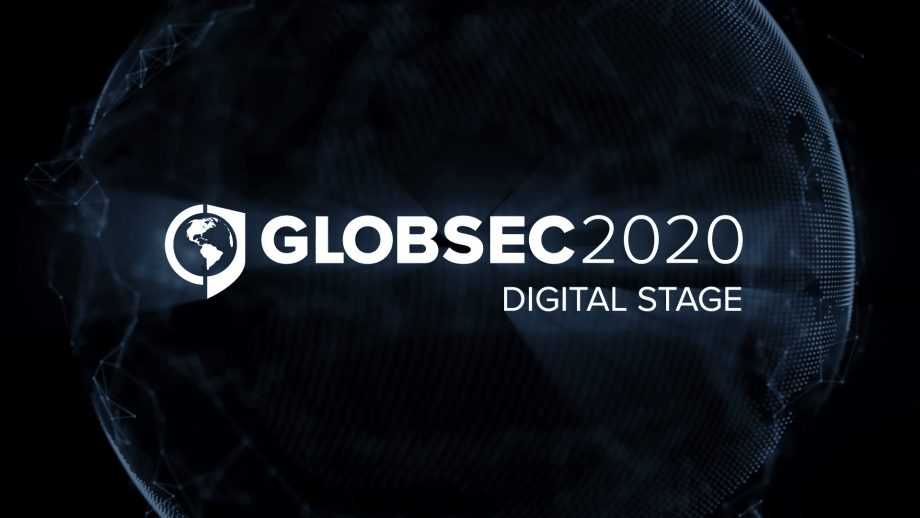
From 26th-28th of August GLOBSEC had the pleasure of hosting a three-day live event promoting the values which our policymakers and leaders need to know at this crucial time. The end result, 2020 Digital Stage, was a unique and immersive live-streamed virtual conference, with high-quality production
provided by XLAB Realtime.
The event was preceded by a three-month online intelligence brainstorming with experts from around the world about the effects of the pandemic and the trends that will shape the world in the coming period. Political stakeholders, business representatives and experts identified key Megatrends: the most important things to be aware of in terms of future Europe, the balance of power, digital transformation, sustainability and security.
75 illustrious speakers, including the President of the Republic of Estonia, Kersti Kaljulaid; former Prime Minister of the Republic of Moldova, Maia Sandu; former Prime Minister of Australia, Kevin Rudd; Minister of Foreign and European Affairs of the Slovak Republic, Ivan Korčok; Principal Deputy Assistant Secretary Bureau of European and Eurasian Affairs Philip T Reeker; Co-Chair European Council on Foreign Relations, Carl Bildt, and other top-level NATO and EU officials spoke on a wide range of issues.
1,006 participants from 91 countries registered through our special platform and there were more than 2,000 live views with thousands watching later. We heard 20 fascinating talks within this second phase of our 2020 flagship event which will culminate in the GLOBSEC Forum 2020, 7-8 October 2020.
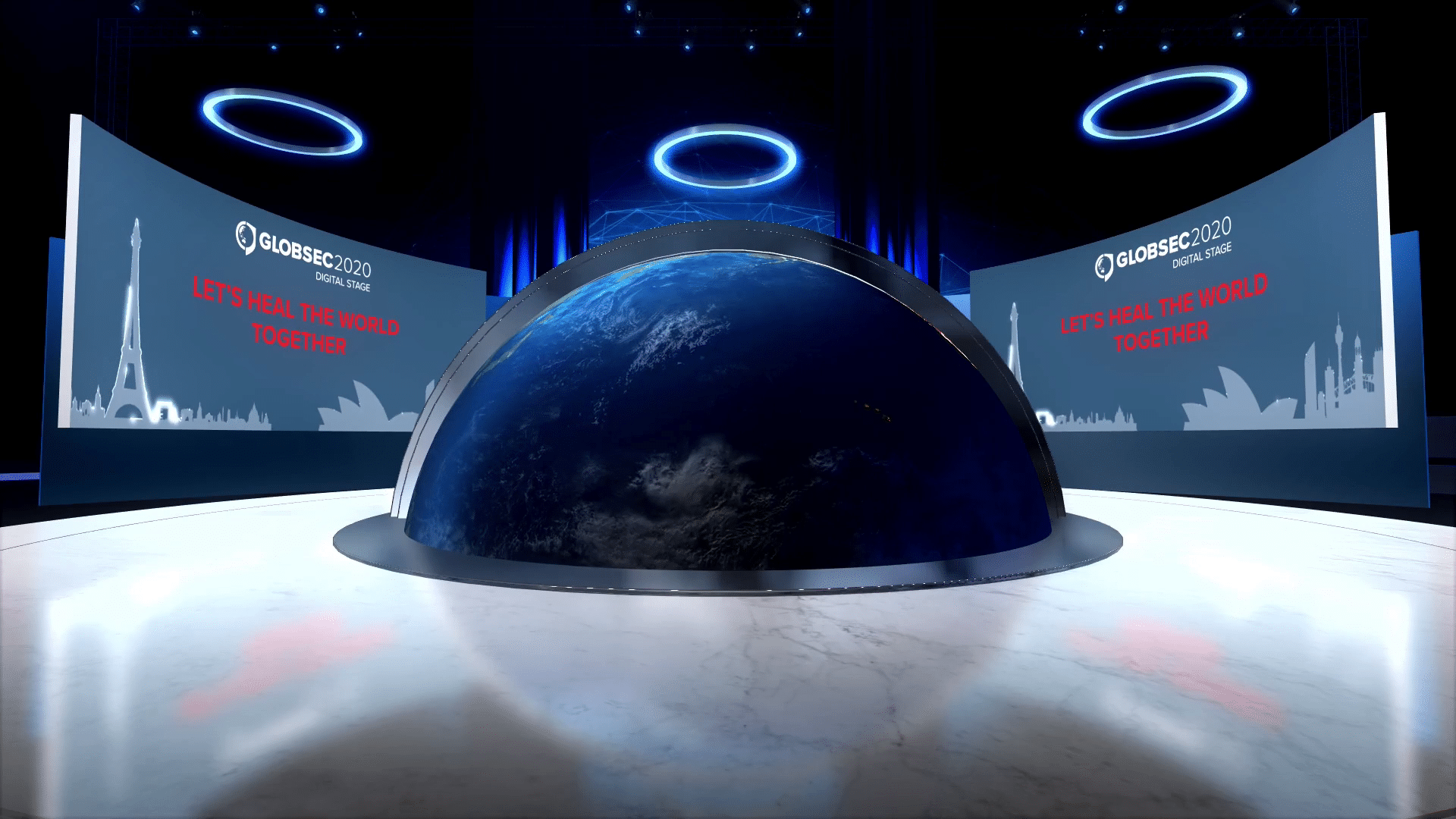
We looked at the effects of automation and AI post-COVID-19 and how they can be leveraged in sustainability initiatives, the changing relationships of China-US, the situation in Lebanon after the devastating Beirut Port explosion and what the EU needs to do to increase democratisation and resilience, amongst many other topics. There was even room for Mars exploration from aerospace engineer Anita Sengupta.
Of key political interest was an exclusive interview with Sviatlana Tsikhanouskaya, the main opposition candidate in the 2020 Belarus Presidential Election, speaking to us from Lithuania, where she fled to following disputed elections in Belarus. She was grateful to all the leaders she had spoken to and was open to dialogue from any country. “I left my heart in Belarus... We know what we want. We want a new free and fair Belarus for our children.”
Media coverage of the whole GLOBSEC Digital Stage 2020 event was extensive both nationally and within the CEE region, with the interview with Sviatlana Tsikhanouskaya live-streamed by Associated Press through its channels. If you missed it, the high production live-streamed event is still available to view via GLOBSEC social channels.
DAY 1
Session 1: The World After COVID-19
The impact of the COVID-19 pandemic was in the spotlight. The key takeaway was that we need to devise strong and robust crisis management to deal with the disruptive and unexpected events that threaten to harm our future existence.
Session 2: Strengthening Transatlantic Cooperation in Times of Upheaval
With heightened geopolitical concerns over a revanchist Russia and a more assertive China as resilience, the rule of law and security are more important than ever. One view was that an open and structured EU-US dialogue is needed to achieve efficient and comprehensive tangible results.
Session 3: Disruption as Central Europe’s Accelerator for Deep Economic Overhaul
To reinvigorate outdated Central and Eastern European economies post-pandemic requires enhanced cooperation between private and public sectors, with governments taking an active role in innovative technology. This is an opportunity for CEE economies to restructure and become more resilient.
Session 4: Infodemic’s Disinformation Revenues as Million Dollar Business
The new reality reveals the extent of disinformation. The digital world should be regulated as much as the offline world is - the EU’s upcoming Digital Services Act is one potential answer.
Session 5: Crafting a Transatlantic Response to the Challenge of Belarus
The disputed presidential election in Belarus captivated the world with its unprecedented and inspiring social and political mobilization. EU unanimity and rapid preparation of sanctions with a coordinated response between the EU, US, Canada and other democratic countries could be an effective response.
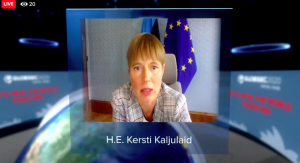
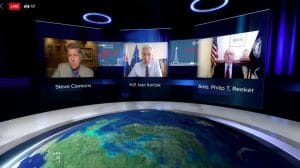
DAY 2
Session 1: China’s Continued Rise vs. America’s Relative Decline
Strident tones in the proclamations of both global superpowers have led to drastic deterioration, with ‘wolf warrior’ diplomacy being China’s new approach to the outside world and the heightened risk of a crisis. Climate change collaboration is critical from the world’s largest greenhouse gas emitters.
Session 2: AI Will Establish a Sustainable Future
Addressing the role of AI in building a sustainable future, and its use in resolving the global climate crisis, the expert panel suggested a political agenda, such as the European Green Deal, will benefit greatly from education and finance directed at the field of sustainably based technological resources.
Session 3: Greater European Strategic Autonomy
Carl Bildt assessed that without US support, the EU is handicapped. Military hard power is an essential prerequisite, according to General Graziano, for the EU to be a credible geopolitical actor. Knud Bartels championed raising the involvement of smaller nations to maximise funds in austere times.
Session 4: Update on Israel-UAE Relations
An update on Israel-UAE relations following a recent deal and the devastating Beirut Port explosion in Lebanon. The deal potentially normalises agreements between the states and maybe a starting point for further progress by bringing in pragmatic, moderate diplomats.
Session 5: Update on Lebanon
The catastrophe laid bare a corrupt political system. The growing rejection of traditional political parties is indicative of the theft of state contracts and resources, with a faulty dam project prioritised over relief. An independent judicial system and improved electoral process are crucial.
Session 6: Countering Terrorism in Virtual and Decentralised Space
The risk of extremism is higher now due to their abuse of commercial algorithms and gaming platforms. It is important to be aware of children’s internet behaviour in an age when personal data can be weaponized; at home, people are psychologically more comfortable and may take more risks.
Session 7: Presentation of the CRAAFT Project
This joint project between GLOBSEC, RUSI Europe, the ICCT and the University of Amsterdam is an academic research and community-building initiative aiming to build stronger, more coordinated counter-terrorist financing (CTF) capacity across the EU and in its neighbourhood.
Session 8: Automation Will Reshape the Workforce of Tomorrow
Automation will most likely replace analytical, administrative and clerical work, with jobs-rich in social intelligence, cultural sensitivities or caring for others less jeopardized. COVID-19 exponentially increased the replacement rate. Yet AI uses a lot of energy and has a narrow functionality.
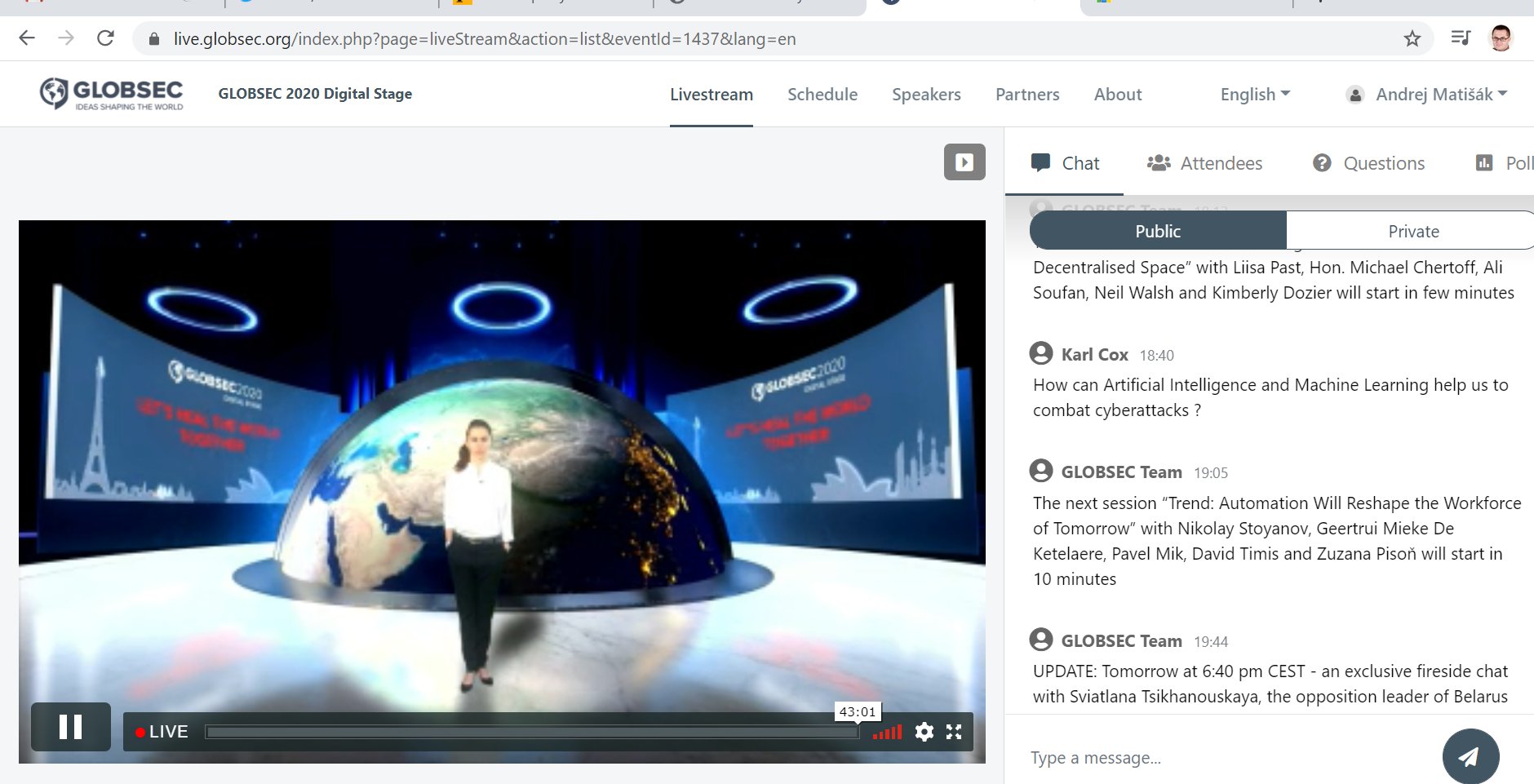
DAY 3
Session 1: Resilience is the new Asset in the Post-COVID-19 World
Resilience is being reconceptualized in the COVID-19 world and is becoming a new asset, an ongoing process that underpins an organisational mindset and prepares for scenarios that might never actually happen. We need to think of our values and let our decisions and planning be guided by them.
Session 2: A More Geopolitical EU Amid Growing Instability in the Neighbourhood
The EU has an increased role in the neighbourhood amid growing instability. While the right decisions are eventually made, it takes a long time to reach them. The relationship with the immediate neighbourhood is of crucial importance, and not only during crisis time.
Session 3: Pushing Back Against State Capture
State capture undermines democracy and produces a dysfunctional system, which may be geopolitically exploited. Building strong and democratic institutions is a difficult task, but it is the only way to revert build resilience. The problem of state capture is not isolated to a specific region but is global in nature.
Session 4: Rising Divisions Will Change the Face of Democracy
The inauthenticity of elected officials increases the feeling that the needs of people are not accounted for by public representatives. A lack of engagement with non-state actors and the media results in lack of trust, and people becoming less compliant to government regulation, problematic during COVID-19.
Session 5: A More Fragmented EU
There is an increase in debt and emerging divergence among EU leaders. Post-COVID-19 is uncertain, but the paradox is that we are seeing a larger role for national governments. The EU may become a loose intergovernmental project with some states delegating more power to Brussels.
Session 6: The Future of Mars Exploration: A Mission of Perseverance and Ingenuity
Water was discovered on Mars thanks to robotic exploration. Our new rover converts carbon dioxide into oxygen, self-generates power and carries a helicopter, which will be the first time a device has been flown on another planet. With international cooperation, we may see humans on Mars in 15 to 20 years.
Session 7: Update on Belarus
Sviatlana Tsikhanouskaya, the main opposition candidate in the 2020 Belarus Presidential Election spoke to us from Lithuania, where she has fled to following the disputed election in Belarus.
“I left my heart in Belarus,” she expressed. “And I know I’m the same as you are. We know what we want. We know we want a new free and fair Belarus for our children.”
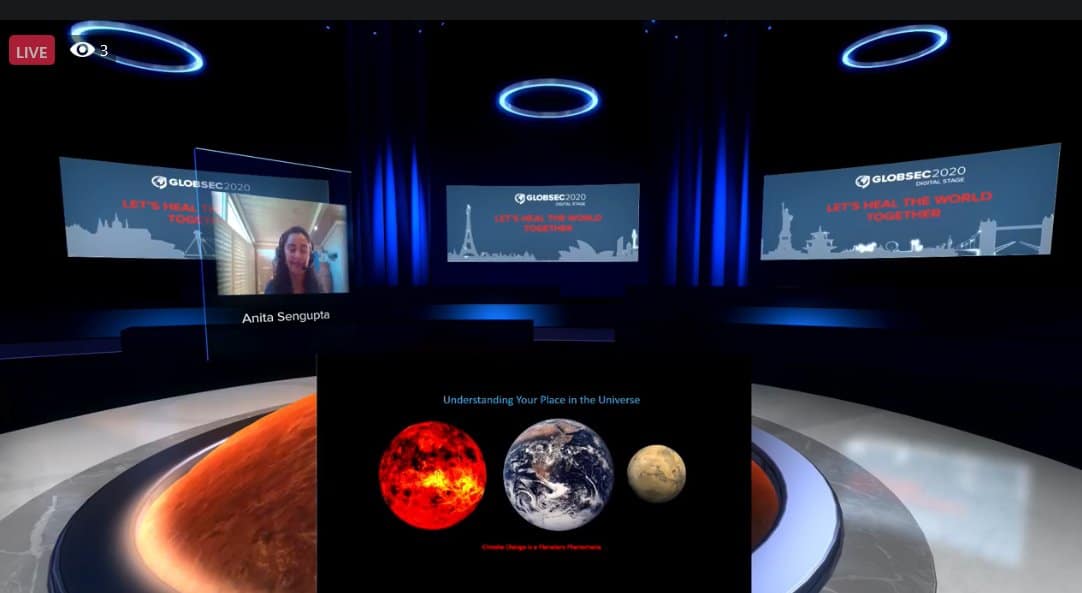
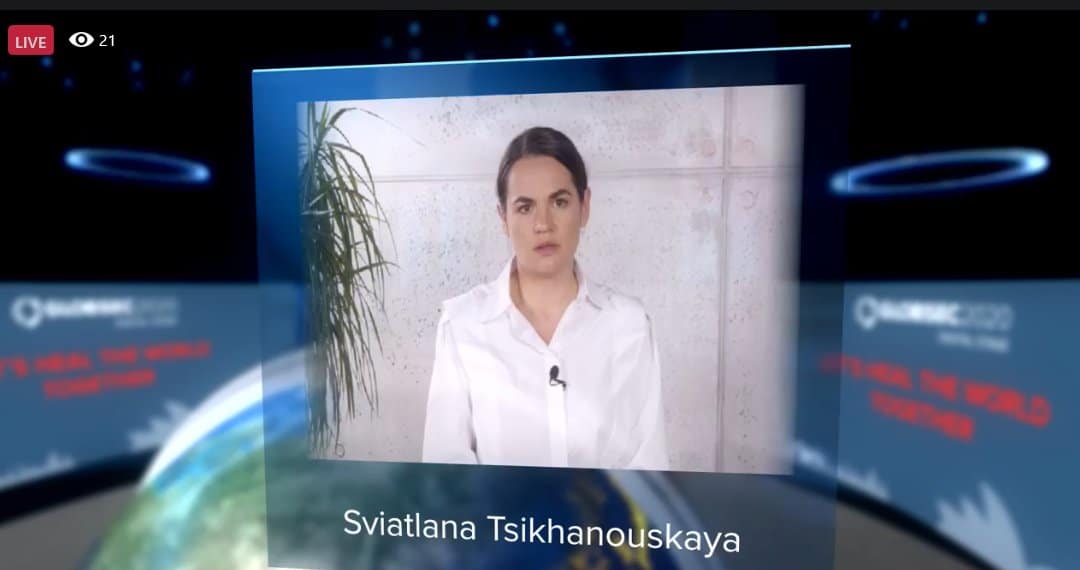
We would like to convey our most sincere thanks to all of you for making this GLOBSEC Digital Stage a true forum for the exchange of ideas that will surely contribute to a global recovery after the COVID19 pandemic.
Thus, we would like to invite you to join us on 7-8 October, so that we can continue to heal the world together.
Request your invitation here for the #GLOBSEC2020 Bratislava Forum.